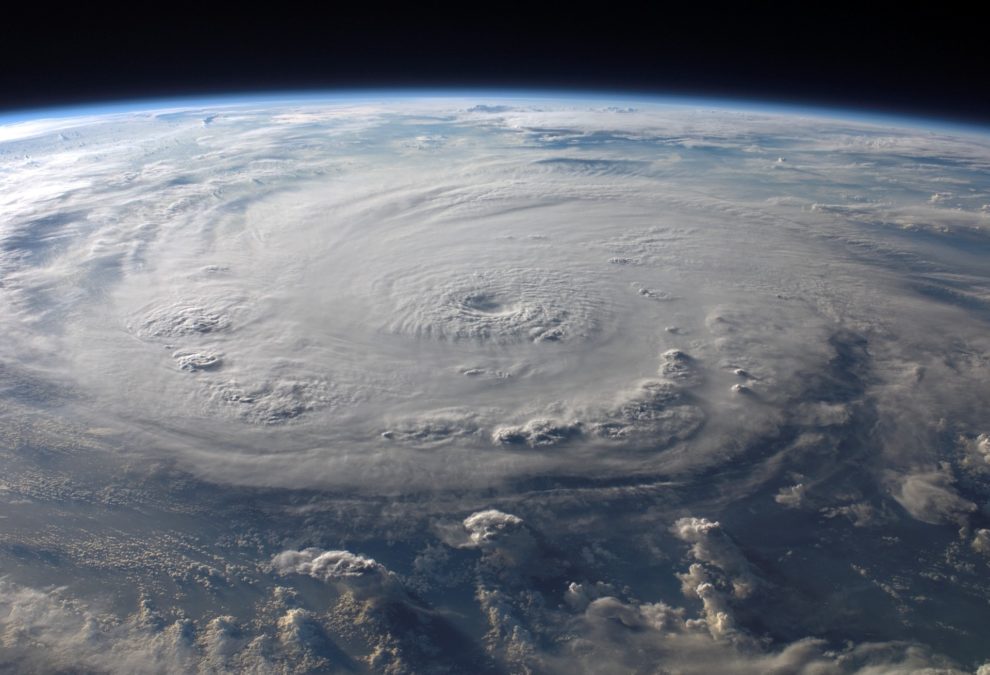It’s that time of year when it’s important to be prepared for hurricanes and tropical storms! Our area can experience flooding and power outages during and after major storms. We’re sharing a hurricane preparedness checklist to help you and your family stay safe! The first items on the list are things to have on hand – especially if the Eastern Shore is in the path of a major hurricane. The second part of list tells you what to do before, during, and after the storm. Stay safe, everyone!
Items to Stock
Must Haves
- Battery powered TV
- Battery powered Radio
- Flashlights
- Battery lantern
- Extra batteries
- Lighters/Matches
First aid kit
- Extra prescription medicine
- Nonprescription medicines like pain relievers, cough cold and flu, decongestant, etc.
- Band-Aids
- Gauze
- Anti-biotic cream
- Iodine
- Scissors
- Tape
- Moist towelettes
Water minimums
- 7 gallons per person
- 2 gallons additional water for cooking and sanitation per person
- Portable water filter
- Ice chest and bags of ice for storage of food and medicine
Food
- 2 weeks’ worth of non-perishable foods requiring little or no preparation, cooking or water, baby food and formula
- Snacks that do not increase thirst
- Hard candies for diabetics needing glucose balance
- 2 weeks of pet food
Creature comforts
- Extra cash and credit cards
- Bug repellant
- Sunscreen
- Solarcaine
- Teddy bear
- Candy and gum
- Juices and sports drink
- Cards, books, games
- 7 days of clean clothes
Important Papers
(Store these items in waterproof container and have them ready for evacuation if necessary.)
- Copies of Driver’s license
- Passports
- Social security cards
- Immunization records
- Utility bill
- Emergency phone #
- Family records (birth, death, baptism, marriage certificates)
- Copies of will, deeds, insurance policies, contracts, stocks, and bonds, next of kin notification phone #’s
- Inventory and pictures of valuable household items
- Any desired family photos
- Map and directions to emergency shelters
Supplies and tools
- Diapers
- Sleeping bags and pillows
- Grill, charcoal or gas for grille
- Disposable utensils and plates/bowls for eating
- Can opener
- Toothbrush, toothpaste
- Hand sanitizer
- Toiletries
- Cleaning supplies
- Trash bags
- Crowbar
- Hammer
- Sledgehammer
- Chain saw
- Hand saw
- Nails
- Workman gloves
- Rope
- Fire extinguisher
BEFORE THE STORM
Make a family plan
- Complete a plan of action with the entire family. Make sure everyone knows evacuation procedures and preparations for inside and outside the home.
- Get a current map and plan various evacuation routes, make sure all drivers know how to read the map.
- Have a safe place to take your pets, evacuation center can’t take pets.
- Make sure your pet is wearing updated ID.
- Keep your evacuation vehicle gas tank full
Prepare your yard
- Store loose outdoor items and furniture
- Remove debris from yard
- Trim dead branches from trees and shrubs
- Protect pool filter motor
- Secure small sheds
- Park cars in safe place
When a hurricane watch is issued
- Make sure your hurricane kit is complete
- Stay tuned to WBOC for up to the minute reports
- Board up windows
- Remove furniture from window areas and cover with plastic sheets
- Turn refrigerator and freezer to coldest settings and keep closed
- Disconnect propane gas line
- Brace garage doors from inside
- Make hotel reservations for evacuation. Pet friendly if needed
When evacuation order is issued (leave early and in daylight if possible)
- Sterilize bath tubs and sinks and then fill with water
- Put chlorine in pool and leave full
- Notify trusted neighbors of your evacuation plan
- Notify family members outside of evacuation area of your evacuation plan
- Bring your driver’s license and utility bill
- Bring your pets collar and ID
- Pet carrier or cage for travel
- Call local emergency management for shelters that can accommodate you if you have special needs.
DURING THE STORM
- Stay in your home if you have not been ordered to leave
- Secure and brace from the inside exterior doors
- Close all interior doors
- Take shelter in a small interior room
- Stay away from glass windows and items that could become projectiles in strong winds
- If you don’t have an interior room take shelter under a table
- Cover your head with pillows or anything to prevent injury from flying debris
- If you lose electricity, use battery operated lanterns or flashlights for lighting. Do NOT use candles or gas lanterns.
- Use a battery-operated TV tuned to WBOC for storm emergency information.
- If you don’t have a battery-operated TV tune your battery-operated radio to Cat Country 99.5 or 107.9 for storm emergency information.
AFTER THE STORM
- Stay tuned to WBOC for weather reports, road conditions and alerts from authorities.
- Remember, Chopper 16 may be your only reliable source for road information.
- Do not attempt to drive across flowing water.
- Do not enter water or allow children to play in water as there may be downed power lines that may be or may become energized without warning.
- If you have evacuated, return home only after the all clear.
- Use flashlights or battery-powered lanterns for lighting until your electricity is restored and declared safe to use.
- Use bottled water for cooking, drinking and sanitation until authorities declare the water supply safe.
- Take pictures to document the damage to your home and property.
- Don’t wait for the government to clear your street. Obtain the assistance of able-bodied neighbors and clear the street for traffic and emergency vehicles.
- Watch out for snakes, spiders, insects and other animals that may be seeking dry shelter.
- Take reasonable steps to protect your property from further damage as likely your insurance policy requires.
- Use EXTREME caution using chainsaws and other power tools to clean up debris and make repairs.
- Keep generators outside for ventilation.

